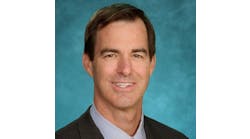$100M Investment to Spur VillageMD’s Growth
VillageMD, a services company whose platform helps primary care practices with population health and value-based care arrangements, has received $100 million in Series B funding to expand its footprint.
Chicago-based VillageMD said its solution provides the tools, technology, operations and staffing support needed for physicians to improve clinical results across a population. VillageMD works with physician groups, independent practice associations, and health systems on quality, and lowering costs. It has grown to include more than 2,500 physicians across eight markets and is responsible for approximately 500,000 lives and $3 billion in total medical spend in value-based contracts.
The funding round was led with $75 million from Kinnevik AB, an international growth-focused investment company, along with a returning investment from Oak HC/FT and new investments from Town Hall Ventures and Adams Street Partners.
VillageMD said it would use the funding to expand its primary care footprint in existing and new markets and enhance docOS, its primary care platform. It will also grow its Village Medical brand and scale its Village Medical at Home offering.
In July, VillageMD bought 10-physician Memorial Clinical Associates (MCA) in Houston, and in August it purchased 10-clinic Village Family Practice in Houston and said it would rebrand the 10 clinics as Village Medical by the end of the year.
In a 2016 interview on the Oak HC/FT website, Tim Barry, CEO and co-founder of VillageMD, described the role of technology in supporting primary care in the company's model: “We identified in one of our markets that we had 1,800 commercial patients under the age of 65 suffering from post-traumatic stress disorder. The risk profile of these patients is nearly two times that of the “average” commercial population. Their access to healthcare, in terms of emergency room visits and hospitalizations, is through the roof. Yet, they still struggle with being able to have access to a defined clinical model that allows for PCPs and behavioral health specialists to partner with them to solve their health problems,” he said. “How we first identify these patients, and how we build the digital clinical maps detailing their care delivery, is driven by technology, claim and clinical data, and care delivery know-how. This includes how we schedule patients, talk to patients, see patients and document what’s going on with them — as well how we see all the different issues they face along their healthcare journey. Technology gives us that insight and points us in the right direction to introduce solutions that enhance this human-to-human interaction.”

